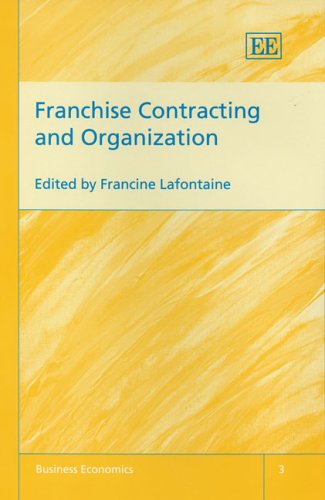Business Economics
1 total work
Franchise Contracting and Organization
Published 26 August 2005
Much has been written about franchising in economics over the last two decades: researchers have gained important insights, especially into how and why it works and into the reasons behind the various forms of vertical restraints usually embedded in these contracts. This authoritative volume presents the key papers that have introduced the theoretical frameworks and the empirical facts that have spurred the interest of scholars in franchising as an organizational form. By combining all these contributions in a single volume, this collection not only highlights the main questions that have been addressed in the literature on franchising, but also illustrates the important role that incentive issues have played in it. As a result, this compilation should be of special interest to economists and management scholars with an interest in franchising but also to those interested in general issues concerning the organization of the firm.
